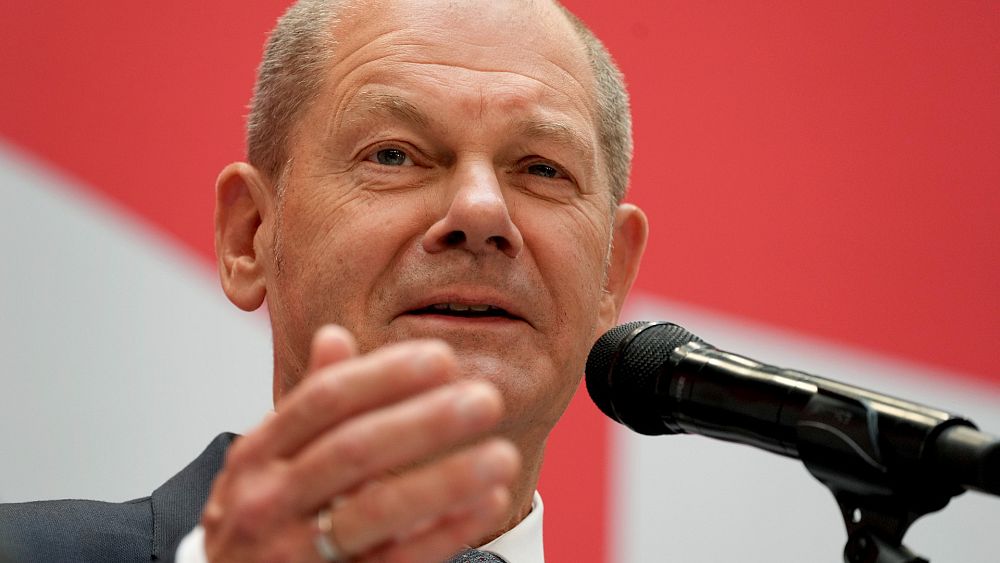
Pressure grew for a quick start to talks on Germany’s next government as newly-elected lawmakers held their first meetings on Tuesday.
The narrow winners of Sunday’s election, the centre-left Social Democrats of Olaf Scholz, underlined their hopes of a quick start to coalition talks
The SPD was in a “grand coalition” with Chancellor Angela Merkel’s centre-right Union bloc in the last government but neither formation is keen to renew the power-sharing deal.
Instead, both hope to entice the third- and fourth-placed parties — the environmentalist Greens and the business-friendly Free Democrats (FDP) — into a coalition.
The new federal parliament — Bundestag — counts 735 seats. The SPD has secured 206, the CDU/CSU bloc 196, while the Greens and Free Democrats have 118 and 92 respectively.
Leaders of the Greens and FDP plan to meet each other this week to search for common ground before entertaining advances from potential suitors.
“The Greens and Free Democrats have been invited by us to hold exploratory talks with us this week already if they want,” Social Democratic parliamentary group leader Rolf Muetzenich said before a gathering of his party’s newly elected and outgoing lawmakers.
Scholz, the outgoing vice-chancellor, said Monday that he wants a new government before Christmas if possible. Forming a government can take weeks or months in Germany as parties thrash out in detail the new coalition’s plans. In the meantime, Merkel is to stay at the helm of the country in a caretaker capacity.
‘The CDU is not our first choice’
Tensions are meanwhile rising within the ranks of the Christian Democrats (CDU), which scored its worst-ever result on Sunday.
The party, led by Armin Laschet, is to gather its lawmakers later on Tuesday.
Laschet said after the election the CDU would do “everything we can” to form a new administration that he would lead but calls have since grown for his resignation within the party.
Michael Kretschmer, Minister-President of Saxony opened the hostilities, saying: “The voters have clearly told us: ‘the CDU is not our first choice'” and warned that “business as usual” would lead to ruin.
Norbert Röttgen, another party baron, concurred — “I don’t think we can claim to lead the next government.”
Facing revolt, Laschet has since admitted that the CDU, one of Europe’s oldest parties, and in power for the last 16 years, “needs renewal” at all levels.
But he faces an uphill battle. A Forsa poll released on Monday found that only 11% of German voters want him as chancellor, compared to 58% for Scholz.
Another poll found that half of the respondents favoured an SPD coalition with the Greens and Free Democrats rather than a CDU one involving the same parties.
‘Traffic light’ coalition
A top lawmaker with the Free Democrats called for all parties to be ready for talks by the end of this week, and for the Union to figure out what it wants to do. Marco Buschmann, the party’s chief whip, told Deutschlandfunk radio that “very different signals are being sent in the Union. Some want to govern, I think — others don’t.”
During the campaign, the Greens had indicated it favoured entering into government with the SPD and Anton Hofreiter, one of the party’s leaders, noted since that while the Social Democrats and the Free Democrats made gains in the election, the Union lost significant ground.
“We will of course talk with all democratic parties, but that’s why it’s more likely that in the end there will be a ‘traffic light,’” he said, using the German shorthand — based on the parties’ colours — for a Social Democrat-Green-Free Democrat alliance.
The new Bundestag, or lower house of parliament, is expected to hold its first meeting next month.
Hackdra is a cyber security company that can provide smart contract auditing, pen-testing, bug bounty, blockchain, web3, DeFi, NFT, and ARM services with AI.